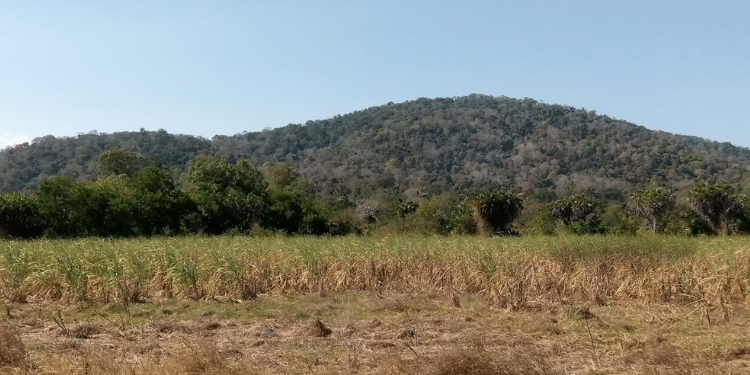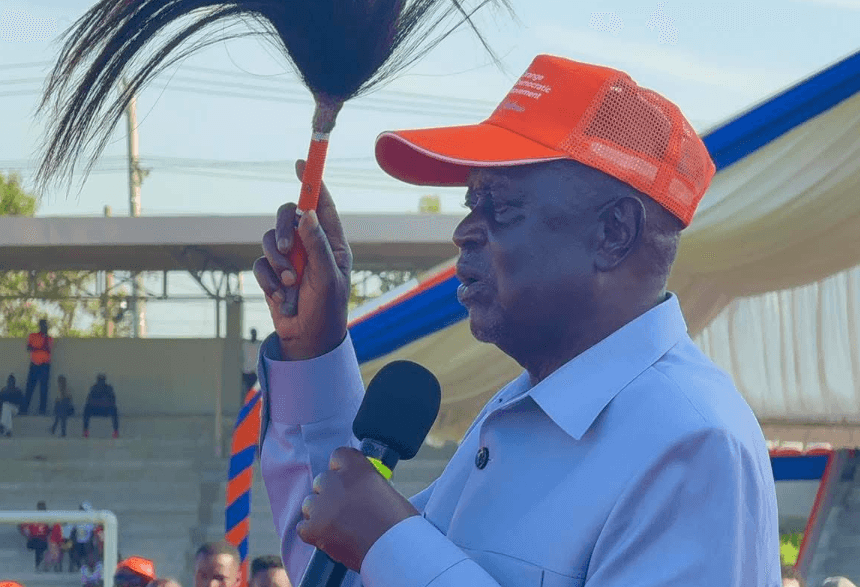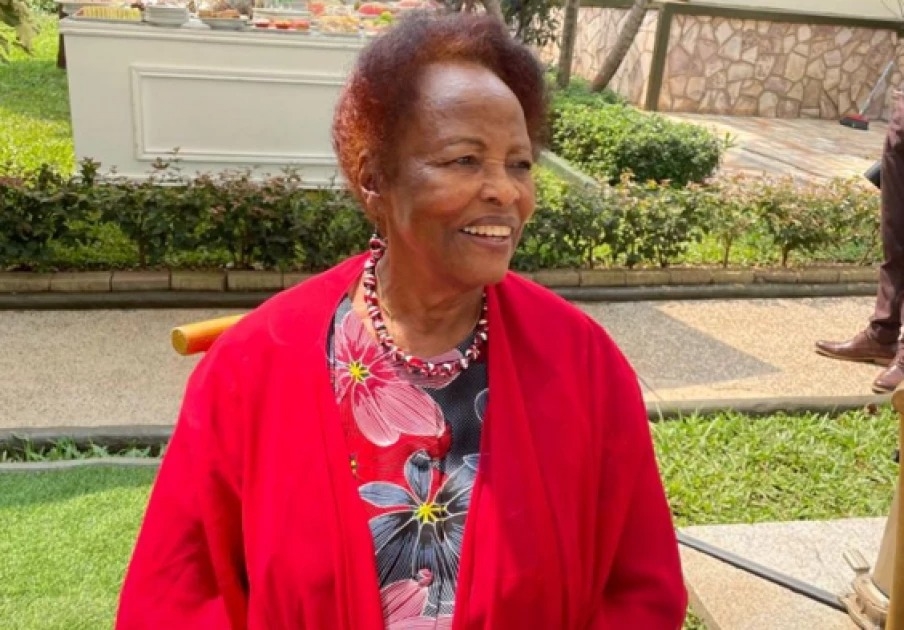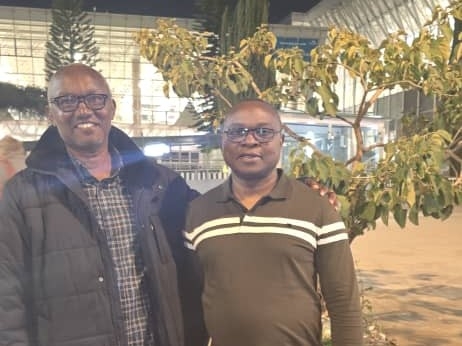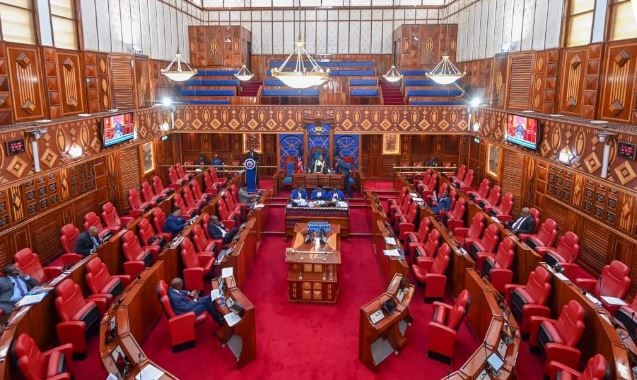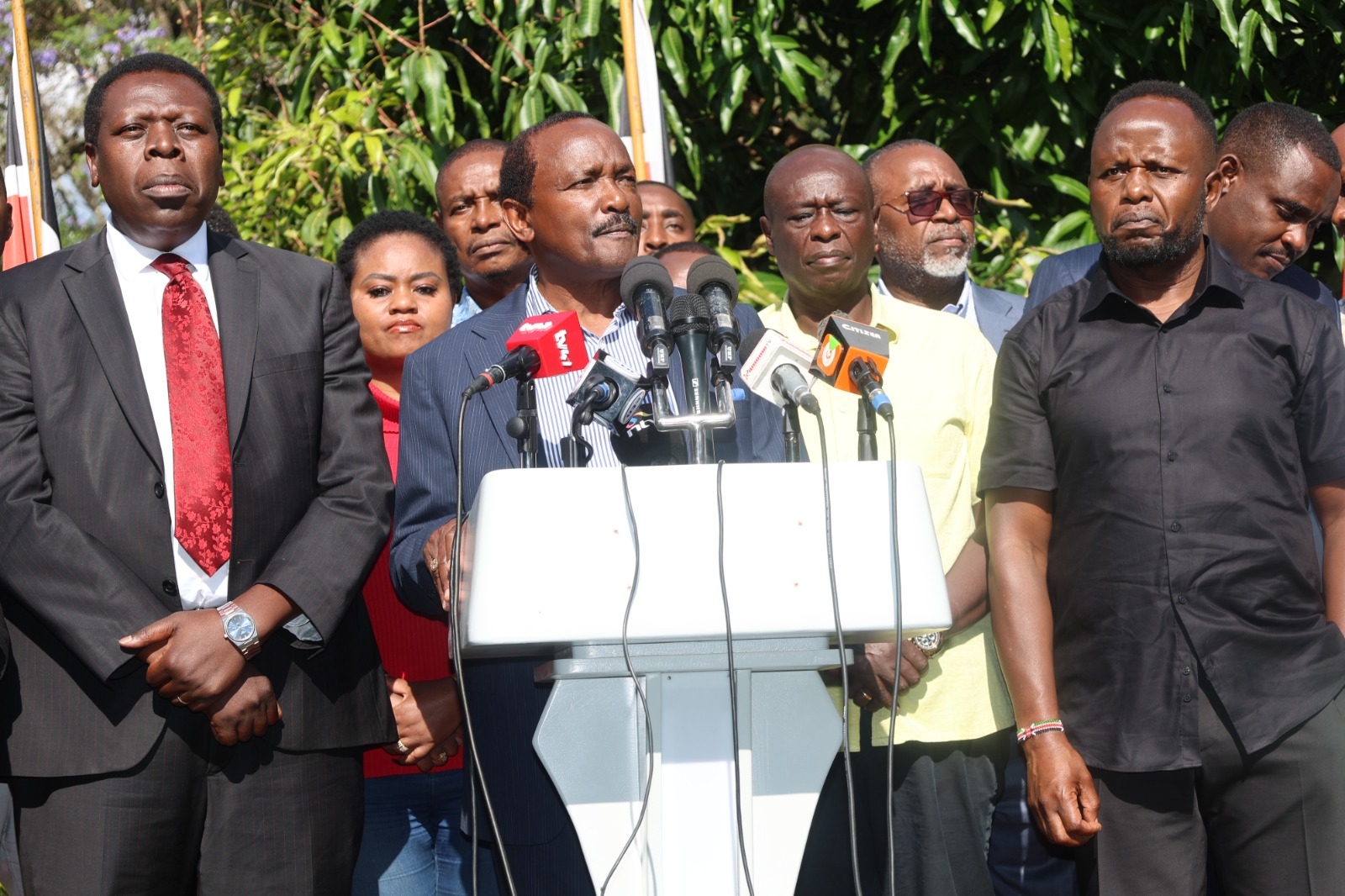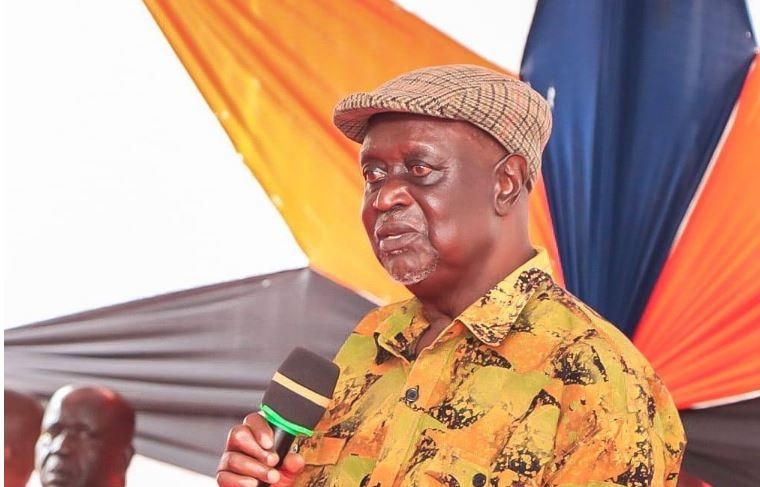As Kenyans from all walks of life celebrated this year's Mashujaa Day to collectively honour those who contributed to the struggle for Independence, a former armed robber-turned-pastor was being celebrated at Kericho Prison.
Bishop Peter Mogaka, once a notorious armed robber whose proverbial 40 days of a thief eventually came to pass, is now a living testimony that crime does not pay. He preaches his sermons to inmates inside prison cells.
He was recently appointed as the head cleric at the Beginning Ministries International, Kericho, where he preaches his journey of deliverance, affirming that prisons can reform and rehabilitate hardcore criminals.
As a founder member of the church, the minister says he is wholly dedicated to helping prisoners change from habits that robbed them of their jobs, friends, family and relationship with God.
In an interview, Bishop Mogaka reveals that he began his criminal career at the tender age of 10. That led him to a 21-year hellish journey filled with pain, drugs, alcohol, and verbal and physical abuse.
Born 50 years ago in a family of four children in Nyaturubo village, Kisii, he narrates that he grew up in a dysfunctional family that denied him the opportunity to enjoy parental love, basic needs and education.
His first contact with booze was when he was only 10 years old while living in his aunt’s home, where being drunk was the norm. The aunt has since died.
“This is where I was introduced to beer drinking. If you were not drunk, then you would be the odd one out,” Bishop Mogaka says.
By the time he was 16, he had become a chang’aa brewer in his home area, a skill he learnt from a neighbour who had employed him at her den for a year. Poverty stung, bringing the worst out of him. At the time, he was living with his elderly grandfather who begged for food from his villagers.
Bishop Mogaka graduated to stealing, a habit he developed to keep his hunger pangs at bay. This was in addition to smoking bhang, a problem that kept worsening. It was not long before the long arm of the law caught up with him. But even nights spent in police cells at his home area did not deter him from stopping his stealing itch. Unknowingly, he was on his way to being a hardened criminal.
“I was so much into beer and smoking cigarettes that I got addicted and it became just normal. That is the time I needed something more powerful than I can feel. I moved into smoking bhang, at the time I was 17 years. What I wanted was life to go on but I didn’t know how and where,” Mogaka recalls.
With everything in his life going wrong, he met and fell in love with a woman at his rural home when he was aged 18. The woman later became his wife — the mother of his six children. Sadly, he had to embrace a lifestyle of lies while living with her to save himself the embarrassment, but knowingly this was just a temporary cover-up.
“I met Veronica while on my errands of transporting alcohol from one place to another. At this point in time, I was an enemy of the local administration, as well as the police, so I decided to inform her that I worked as a GSU officer. I lied to her," he says.
"At the time, almost all the women in the village desired to get married to uniformed officers and one of them was my Veronica. We agreed to start life but I never told her I was an alcohol dealer because she knew me as a GSU officer. I tried my best not to reveal my way of getting money because I feared she might not stay with me. I knew that one day I would be able to take good care of her.”
He managed to put up a small hut for his wife at his rural home using the proceeds of alcohol trade but later opted out of the illegal business for greener pastures in Kericho town. He was employed at Gotab Sanik Bakery, earning Sh700 as a casual labourer in 1989. Mogaka felt the money was too little to support his wife back home. His smoking and drinking habits ignited the stealing twitch in him.
“The Sh700 was not even enough for me to drink and smoke. With this little pay, I decided to join a group of thugs who were terrorising people at night pretending to be police officers,” he says.
He recalls his first robbery attempt — an incident in which God saved him from the jaws of death.
“The robbery took place on June 20, 1991, at around 11pm. We were doing our usual rounds of terrorising Kericho town residents with my gang of robbers, impersonating police officers.
"I recall that three of us entered a homestead where we found the owner in his sitting-room warming himself on a jiko. One of us asked him for the radio permit but the man immediately asked for our identification and this is where all hell broke loose,” he says.
During the incident, he was armed with a gun and took off after the man raised the alarm, prompting neighbours to rush to the scene armed with all manner of crude weapons. He found himself inside a pit latrine that was full of human waste.
"I started running not minding where I was stepping as the crowd was in hot pursuit. I suddenly fell inside a pit latrine and was submerged in the waste with maggots crawling all over my entire body. I stayed there for some time and when I heard no noise coming from above, I slowly made my way up and went to a nearby river where I took a bath and proceeded home,” Mogaka says.
To evade arrest, he ran away from Kericho and went back home where he stayed briefly before travelling to Nairobi where he joined a security firm as a watchman. After working for three months, he joined a group of guards who engaged in organised crime in the capital city and its environs.
This went on for a year. He worked as a security guard by day but at night he would take advantage of his uniform to rob others. The trick he used to survive was that his gang members would leave him tied up after ransacking and taking off with their loot after every robbery.
The teary Mogaka recounts a harrowing robbery incident that left him scarred for life both physically and emotionally. Mogaka says he was walking in the streets of Nairobi while armed with a gun and met a pregnant woman who was being escorted to hospital by two ununiformed men. Little did he know that one of them was an armed police officer.
He instinctively sensed that they were carrying money as he walked past them and his itch to rob intensified. He turned back to follow them. He felt safe owing to the fact that he had a gun tucked away in his trousers. He immediately ordered them to "kneel while raising your hands".
He collected their cash and confidently walked away. To his surprise, a few minutes later, the police officer corked his gun shouting: "Don’t move, or I will shoot."
He ignored him and on turning around to face his aggressor, he suddenly felt a sharp pain in his left knee. He recalls finding himself lying in bed at Kenyatta National Hospital (KNH), with his hands cuffed and several armed police officers keeping watch over him. Mogaka depicted the happenings of the ill-fated day as they were out of a movie script.
As he narrates his ordeal, he is visibly shaken. He says he was hospitalised at KNH for seven months. He underwent knee surgery before his trial, which was later dismissed after some of the witnesses failed to testify against him in court. He adds that this did not deter him from proceeding with his criminal lifestyle. Luck, however, ran out after he was arrested in Mukuru wa Njenga by heavily armed police officers who stormed his house during the day in December 1991. He had been asleep.
He was taken to several police stations in Nairobi where identification parades were conducted and each time witnesses would pick him up as the armed robber they spotted at their homes. This led to him being held on remand at the Industrial Area Prison to await trial.
He says he faced robbery with violence charges, a punishment that carried the death penalty by hanging. In January 1992, he was arraigned in Milimani, Nairobi, and charged with robbery with violence. He pleaded not guilty and was remanded at the Kamiti Maximum Prison. At the time, he was only 22. Life at the ‘D block’ remand facility was grave and he had to endure many sicknesses, mental torture and starvation before his miraculous release in 1995, he says.
“I spent my life at ‘D block’ for four years and some months. I went through sickness, deadly diseases, skin diseases and mental torture. Twice, I was about to die from hunger. Several times I had to eat crumbs of food mixed with human waste. Life was extremely terrible, this is one of the worst experiences in my life.”
His church currently has branches in Zambia and Rwanda. He is grateful to a cleric who visited him in prison in 1994 and engaged him in a series of talks on the need to break away from a criminal way of life.
“I was a gun-toting thug and when I was leaving prison in 1995, I knew I had to be a better person. Back home, my wife and my pastor all received me well and created a good environment for me to change.”
He vowed to reform his behaviour and succeeded in doing so after his family and community accepted him back without prejudice.
Kericho prisons commander in charge of the main prison Aggrey Akayo said the facility incorporates spiritual values in their reform agenda to influence behaviour change and integration of released prisoners back into their communities.
Akoyo said Bishop Mogaka has helped many remandees and inmates seek change in their behaviour as they serve their prison terms for various offences. He said that goes a long way in promoting discipline.
"Bishop Mogaka, who was once a remandee at Kamiti Maximum Prison, has been of great service to many of the prisoners serving various sentences at Kericho GK Prison. We encourage rehabilitation and reformation of our clients by including spiritual values in our reform agenda, which generates a holistic impact in the life of the inmates," the officer said.
"On completing their prison terms, what they have learnt while being behind bars goes a long way in joining them together with their families and communities once they leave prison. We commend his tireless efforts in seeing that our prisoners indeed become the change we need for our society to live in harmony."




